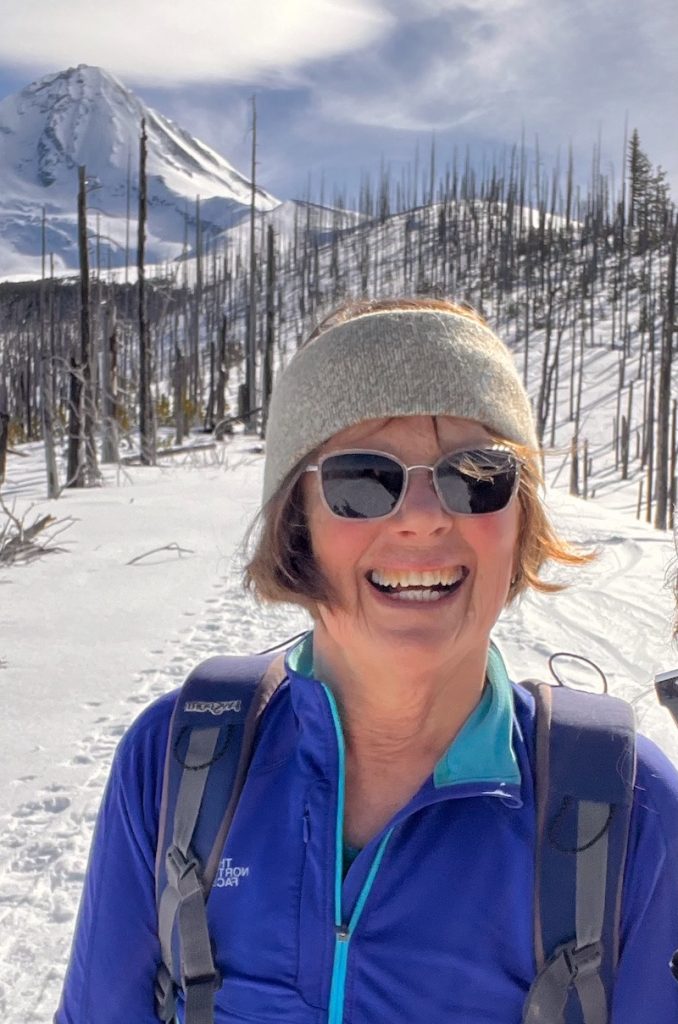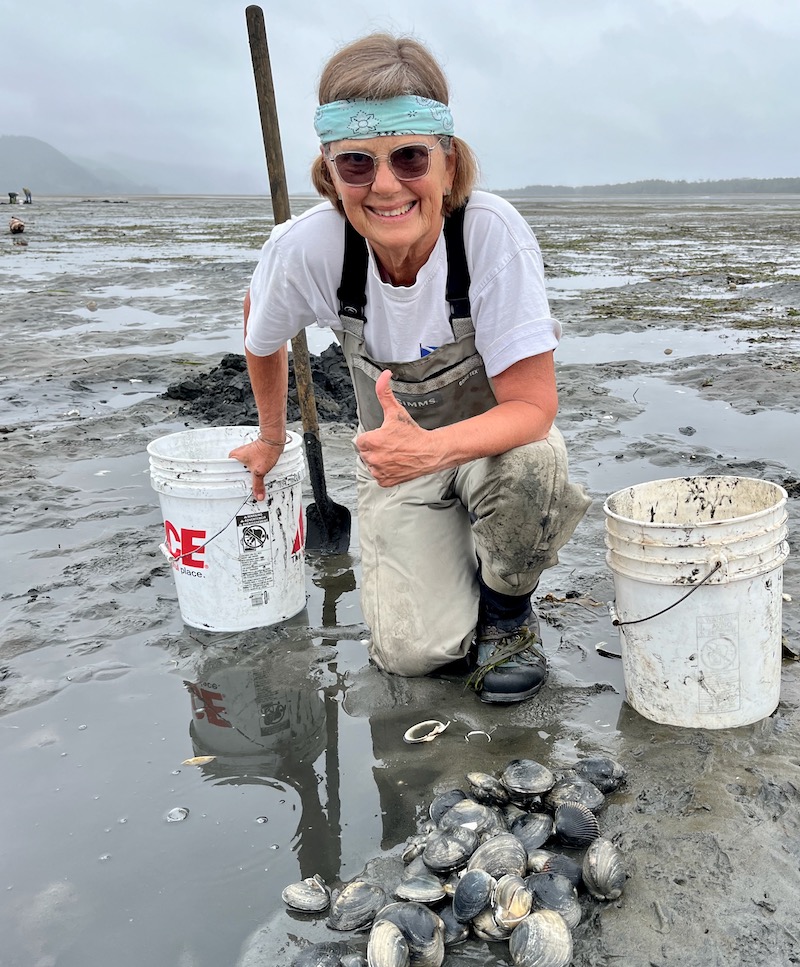This month’s Spotlight features the many facets of Columbia Gorge Master Gardener Tracy Willett.
Tracy grew up in a New England community. When asked about her earliest gardening memories, she remembers that her parents grew “a few rose bushes and rhododendrons.” During World War II, her father was sent to work manufacturing DDT. She specifically recalled a bag of dichloro-diphenyl- trichloroethane (DDT) as a fixture in her father’s shed. Every year he used bellows to randomly and uncontrollably spray DDT on the few bushes in the yard. In the sixties, he eventually realized the impact of the insecticide as the public learned about its toxic effects. Interestingly, he was an engineer who worked in pollution control for steel mills and power plants. After graduating from high school, Tracy attended college in Providence, Rhode Island.
During her last year of college, she made a gardening- based decision to move to the Pacific Northwest. She was so taken with a friend’s description of people growing fruit trees in their backyards that she decided to cross the country and move to Seattle.
Seattle in the early 1970’s left Tracy uncertain where she would go career-wise, as women at that time were just beginning to explore a variety of professional paths. In her twenties, she tried a lot: working in a women’s free clinic, cutting and stacking firewood by hand for $30/cord, a semester of law school, boilermaker welding in the Seattle shipyards, and midwifery in Mozambique. At 34, Tracy eventually landed on medical school at the University of Washington. Tracy’s time in Africa shaped who she became both personally and professionally. From a public health perspective, she never takes it for granted that the water coming out of the tap is clean. Her experience as a midwife in Mozambique led to a career in family medicine with an emphasis on women’s reproductive health. In the Columbia Gorge, she worked as the district health officer in Hood River and Wasco counties, as well as supervising physician assistants in clinics.

She likes to camp, hike, swim, and walk any beach. She and her family have cruised on a sailboat all over the world, including passages across the Pacific and Atlantic oceans.
Among her many interests, Tracy plays the mbira, a percussive instrument from Zimbabwe with metal keys and a sounding board. She has maintained a long- standing musical connection in Southern Africa and the Pacific Northwest mbira and marimba communities.
As a matter of fact, the first marimba that was built in the United States was manufactured in Tracy’s Seattle living room. She is currently working on a project to raise money to place top-notch music teachers in schools through a non-profit organization that promotes and develops Zimbabwean musicians (MBIRA.org).
On the gardening end of the spectrum, Tracy had occasional small kitchen gardens until she moved to Oregon 15 years ago. Tracy and her husband Steve started growing food in their well-appointed rental garden when they arrived in Dee. After moving into their own home in Hood River, they strived to grow and process their own produce while raising chickens and turkeys for eggs and meat. They also fish for salmon, steelhead, shad, trout, and monkey-faced eels, and harvest clams, crabs, shrimp, mussels, and gooseneck barnacles.
Tracy has grown wheat and rye, which she uses to bake her own bread. The first year that she grew wheat, she enthusiastically bought a foot peddled wheat thresher and ground the wheat by hand (one year only for the grinding!). Tracy discovered that a field outside of her kitchen window became “a dust bowl” after harvesting the wheat. She has moved away from the dusty wheat crop and now only grows rye at a significant distance from her kitchen window.
Tracy joined the Master Gardener community in 2018. Learning new information, making friends, and working the plant clinic are highlights of the program for Tracy. She appreciates the training and education that the program provides for Master Gardeners and the public. Her advice for trainees is “not to worry about what you have committed to memory, but to know where to go look.” The first time that she participated in a plant clinic, Tracy was surprised how easily the model led to an answer. She correlates the plant clinic model with her training and experience as a family physician. The plant clinic system “really works if you keep asking questions and being curious until you figure it out,” which is the same approach that Tracy used with her patients.
Tracy especially enjoys the food component of her garden, and grows most of her own fruit and vegetables for the year. She describes her gardening style as “casual messy.” Her passion for growing food translates well into her role as the FISH food garden coordinator. In this role, Tracy has been striving to get kids more involved in the garden in educational ways. She enjoys the public facing opportunities within Master Gardening for gaining and disseminating information and wants families with kids to be able to volunteer conveniently. There are several service groups who volunteer with the garden (e.g., churches, Key Bank employees, students from Klahre House, Hood River Juvenile Department, schools, camps). Focusing on inclusion, Tracy continuously seeks to expand opportunities for youth to get down in the dirt.
Written by Kellie Oosterbaan



Leave a Reply